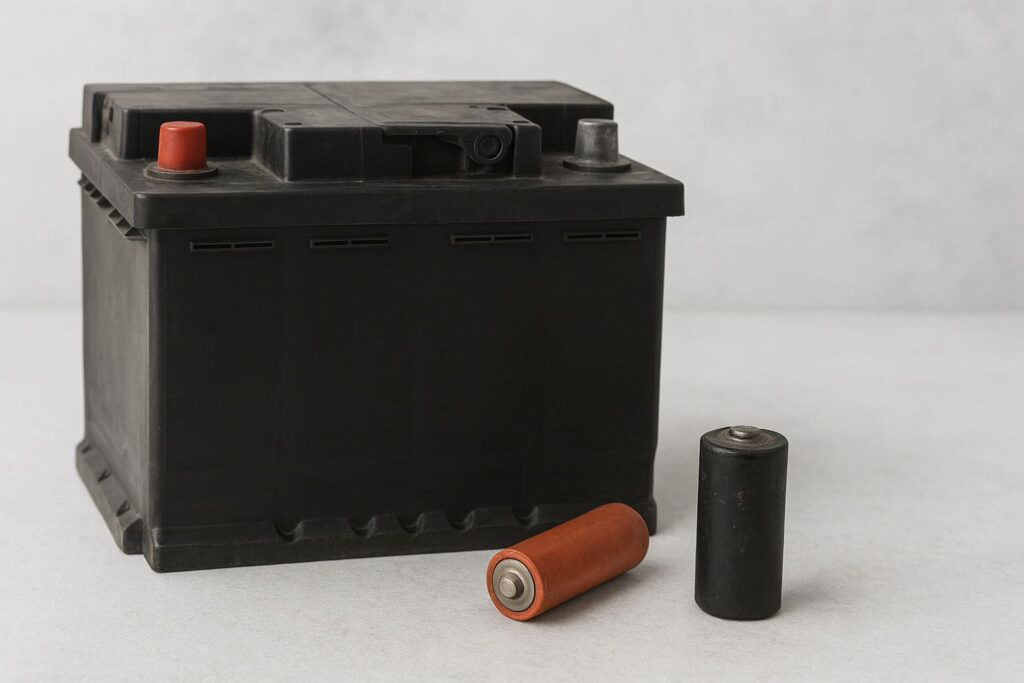Batteries are everywhere: remote controls, power tools, smoke alarms, and car trunks. They’re useful and potentially dangerous if handled or thrown away carelessly. This guide explains
Battery Recycling Services in Winnipeg for homeowners: what types of batteries are recyclable, where to drop them off, how to prepare them for collection, and who to call when you need a safe pickup. I’ll include local references, expert guidance, and practical steps you can use today.
What “Battery Recycling Services” means for Winnipeg homeowners
When we talk about Battery Recycling Services, we mean the local programs and providers that collect, transport, and process used batteries so their materials can be recovered safely. That includes single-use household batteries, rechargeable batteries, automotive lead-acid batteries, and growing programs for lithium-ion packs. Proper recycling prevents fires, reduces hazardous materials in the waste stream, and returns valuable metals to manufacturers.
Why proper battery disposal matters
Batteries contain chemicals and metals that can harm people and the environment if batteries are crushed, punctured, or left in the regular garbage. Lithium-ion batteries, in particular, can cause fires when damaged or mixed with other metal objects. Lead-acid car batteries contain lead and acid that are toxic if they leach into soil or water. For safety and environmental protection, batteries should go to a dedicated collection point or a certified recycling program.
Where to find battery recycling near me in Winnipeg
Municipal drop-off: 4R Winnipeg Depots and city guidance
Winnipeg residents can bring household batteries and small electronics to the city’s 4R Winnipeg Depots. The city explicitly advises that batteries should not go into curbside garbage or recycling and recommends taking them to depot locations for safe handling. 4R depots accept a wide range of household battery types and are a reliable first stop for homeowners.
Retail and dedicated collection networks
Call2Recycle and the national Recycle Your Batteries network manage public drop-off locations at retailers, libraries, and depots across the country. In Winnipeg, you can find local Call2Recycle drop-off points listed on their site, including several 4R depot locations and participating retailers. These networks make it easy to find a nearby, trusted battery collection point.
Automotive battery recycling
Automotive batteries are widely accepted at auto-service shops, battery retailers, scrap-metal dealers, and specialized recyclers. Lead-acid batteries have a long history of being reclaimed and recycled in Canada; drop-off options for car batteries are commonly available across Winnipeg through local auto parts stores and recycling depots.
What types of batteries are accepted
Household batteries (small single-use and rechargeable)
- Alkaline single-use (AA, AAA, C, D): accepted at many depot and retail collection points.
- Rechargeable batteries (NiMH, NiCd, small lithium-ion, such as in phones and laptops): accepted at specialized collection sites.
- Button cells (watch, hearing aid batteries): accepted but often need separate handling due to chemistry. Call2Recycle Canada
Automotive and lead-acid batteries
Car and truck batteries (lead-acid) are widely accepted at auto shops, scrap dealers, and authorized recycling depots. These batteries are one of the most recycled products and are routinely reclaimed for lead and plastic. cec.org
Large format and EV batteries
EVs and large lithium-ion battery packs require specialized handling and are typically managed through manufacturer take-back programs, specialist recyclers, or authorized facilities. Capacity and infrastructure for EV battery recycling are growing across Canada as EV adoption increases.
How to prepare batteries for drop-off
Household battery safety checklist
- Tape exposed terminals on single lithium and larger rechargeable batteries to prevent short-circuiting.
- Keep batteries in a non-metallic container, separated by type where possible.
- Do not crush, puncture, or disassemble batteries.
- Store batteries away from heat and direct sunlight until you can drop them off.
Preparing automotive batteries
- Keep the battery upright and secure in the vehicle for safe transport.
- If the battery is leaking or damaged, handle it with gloves and avoid skin contact; bring it to a recycler and inform staff of the condition.
- Many retailers will accept old car batteries when you buy a new one or when you bring the old unit in for recycling.
Where do recycled batteries go: the processing pathway
Once collected, batteries are routed to specialized processors. The recycling process depends on battery chemistry:
- Lead-acid batteries are often broken down, with lead and plastic separated and reclaimed for new batteries or industrial uses. Recovery rates for lead-acid are very high.
- Rechargeable and lithium-ion batteries are processed to recover metals such as cobalt, nickel, lithium, and copper; the recycling industry and technology are evolving rapidly to improve material recovery from these cells.
Automotive battery recycling: why lead-acid is different
Lead-acid automotive batteries are heavy, regulated, and very recyclable. Canada’s recycling systems have achieved very high recovery rates for these batteries because the lead is valuable and the processes are well established. For homeowners, the practical result is that taking an old car battery to a recognized recycler keeps toxic lead and acid out of landfills and helps reuse core materials.
The national picture: how Canada is doing on battery recycling
Recent national figures show a growing movement toward battery collection. Programs like Call2Recycle and Recycle Your Batteries report millions of kilograms collected annually across Canada. However, Statistics Canada surveys indicate many households still throw batteries in the garbage, a behaviour public programs continue to target with awareness and expanded drop-off networks. Increased EV adoption also signals that infrastructure for large battery packs must scale up in the coming years.
Recycling Product NewsLocal examples: Winnipeg homeowners and simple routines
A practical household routine
One Winnipeg family keeps a small container in a kitchen cupboard to collect spent AA/AAA batteries and a labelled box in the garage for rechargeable tool batteries. Every few months, they drop both at a 4R depot during a regular weekend errand. That predictable habit removes the chance of batteries ending up in the regular garbage and keeps the family safe. Local depots and retailer drop-off points make that routine straightforward.
Local expert perspective
“Small, consistent habits are the easiest win for battery recycling,” says a Winnipeg waste-management consultant. “Use depot drop-offs or Call2Recycle bins at retailers, and tape terminals on lithium batteries so they can’t short in transit.” (Paraphrased, guidance drawn from local program best practices.)
When a depot trip isn’t practical
Not everyone can reach a depot during operating hours or wants to transport heavy car batteries. That’s where responsible local services come in. Mr. Garbage offers pickups and coordinated routing for household batteries and automotive units, working with authorized processors to ensure proper handling. Their crews follow safety protocols — taping terminals, segregating chemistries, and documenting collections, so homeowners can avoid the risks of improper disposal. Mentioning Mr. Garbage here is because many homeowners choose a trusted local partner for convenience and compliance.
EV battery recycling: what homeowners should watch for
EV batteries are large, complex, and require specialist treatment. As the number of EVs grows, manufacturers and recyclers are building programs for end-of-life batteries: some units are repurposed for stationary storage before recycling; others are dismantled for valuable metals. While most homeowners won’t deal directly with EV packs, if you ever need to retire an EV battery, use a manufacturer program, an authorized recycler, or an auto service with experience handling high-voltage systems.
complianceandrisks.comQuick homeowner checklist: before you drop off or book a pickup
- Separate household single-use batteries from rechargeable and automotive types.
- Tape terminals on lithium and larger rechargeable batteries.
- Keep batteries dry and in a non-metallic container for transport.
- For car batteries, secure them upright in your vehicle.
- Use a 4R depot, a retailer Call2Recycle site, or book a pickup with a reputable local service such as Mr. Garbage if you need help.
How Mr. Garbage helps in responsible battery recycling services in Winnipeg
Mr. Garbage offers a practical option for homeowners who want the convenience of a pickup with the assurance of proper routing. Their services include:
- Guidance on which batteries qualify for municipal or retailer drop-off.
- Safe collection practices (taping terminals, secure containment).
- Coordination with authorized processors to ensure batteries are recycled, not landfilled.
If you have a household cleanout, a set of old power tool batteries, or a few automotive batteries,
Mr. Garbage can arrange a responsible collection so your batteries are handled safely and legally. This is useful for seniors, busy families, and anyone with heavy or awkward loads. (Link to Mr. Garbage services for more details.)
Common homeowner questions about Battery Recycling Services
Where can I recycle a battery near me?
Look up Call2Recycle drop-off locations or your nearest 4R Winnipeg Depot. Retailers and some libraries also host battery collection bins. Use the online locators to find the most convenient spot.
Can I put batteries in my curbside recycling or garbage?
No. Batteries should not go in curbside recycling or regular garbage because of fire risk and hazardous materials. Use a depot or collection program instead.
What about button cells and watch batteries?
Button cells often contain mercury or silver oxide and usually need separate handling. Check depot guidance or retailer programs; many accept these cells but may ask that they be placed separately.
The environmental and community benefit
Proper battery recycling keeps toxic materials out of landfills, recovers valuable metals, and reduces the need for virgin mining. For homeowners, a small routine of collecting and dropping off batteries supports local recycling markets and avoids the safety hazards of mixing batteries with other household waste. National programs are increasing capacity, but household participation remains the critical step.
Recycling Product NewsConclusion
Battery Recycling Services are straightforward when you know where to go and how to prepare batteries. Use Winnipeg’s 4R depots or Call2Recycle retailer drop-offs for household batteries, take car batteries to authorized automotive recyclers, and rely on specialist programs for EV packs. If hauling batteries isn’t practical, Mr. Garbage provides safe, documented pickups and coordinates with authorized recyclers so your batteries are handled the right way. Small habits at home: a labelled container, taped terminals, and a trip to a depot- make a big difference for safety and the environment.
Ready to clear out old batteries or schedule a safe pickup in Winnipeg? Visit Mr. Garbage to request a responsible battery collection and keep dangerous batteries out of the garbage and recycling streams.
Frequently Asked Questions (FAQs)
Q1: Where can I recycle a battery in Winnipeg?
A1: Use 4R Winnipeg Depots, Call2Recycle retailer drop-off sites, and participating auto shops for car batteries. Check online locators for exact locations and hours.
Q2: How should I prepare lithium batteries for drop-off?
A2: Tape or cover the battery terminals to prevent short circuits, place batteries in a non-metallic container, and keep them separate from other waste.
Q3: Can I throw old car batteries in the trash?
A3: No. Automotive lead-acid batteries are hazardous and should be taken to an auto shop, recycler, or depot that accepts them for recycling.
Q4: Do retailers accept rechargeable batteries?
A4: Many retailers participate in Call2Recycle and other take-back programs for rechargeable batteries. Use online locators to confirm participating stores in Winnipeg.
Q5: Can Mr. Garbage pick up my old batteries?
A5: Yes. Mr. Garbage offers safe, documented pickups for household and automotive batteries and routes them to authorized processors when homeowners prefer a scheduled collection.

